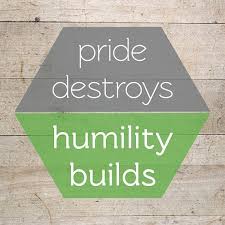 Last summer I sat at Dunkin’ Donuts, enjoying my mint iced tea and the company of seven collegiate women leaders.
Last summer I sat at Dunkin’ Donuts, enjoying my mint iced tea and the company of seven collegiate women leaders.
Our conversation moved from our stories, to questions about developing our friendship with Jesus, and onto deeper more personal issues like pride and humility.
Lucy led the way. She looked at me and asked, what have you learned about humility?
Her question touched my shame.
I know about pride; I’m learning about humility.
Like just this week. Currently I’m leading a group of full-time female Christian workers, pastor’s wives, counselors, and others in a variety of ministries through a course on leadership and grace. Many I’m meeting for the first time. What a privilege; what a challenge; what a great opportunity to learn humility!
“Pride makes up artificial;
humility makes us real.”
Thomas Merton
I’m learning to be real.
One of the un-truths (I hate the word ‘lies’) I always have to counter-act is, I’m not good enough. This course offers many opportunities to believe that all over again. Twice this week (already) I’ve needed to eat humble pie and change how I was asking them to work on a specific assignment. Sue, will you never get this right? I guess I’m just not good (read, godly) enough to be leading this course. Pride wants me to always look good in the eyes of others. Humility teaches me there is a better way.
Pride triggers my shame–I’m not good enough.
My shame is always expressed in the lies I believe about myself.
That lie leaves me alone, masked, abandoned.
The gospel frees me from my opinion of myself!
The gospel is the only thing keeping me from being alone!
That’s the good news! But how do I get there? How do I experience the fruits of humility? Here’s what I’m learning.
Humility trusts God. My leadership does not depend on my expertise. It rests in believing God has called me to this place. And that his purposes are nested in his love. “The LORD will fulfill his purpose for me; your steadfast love, O LORD, endures forever.” Psalm 138:8.
Humility is stewardship. “Before I formed you in the womb I knew you, and before you were born I consecrated you;” Jeremiah 1:5. I believe these words spoken to Jeremiah are also true for me. My leadership is a response to God’s plans for me.
Humility is a place of safety. It is acknowledging that I am yoked to Jesus. And Jesus is the lead teacher, “Take my yoke upon you and learn from me,” Not learn what I do, not learn about me, but learn from me–experience my wisdom. I’m hearing, Sue, allow me to lead you as you lead these women.
“When Jesus calls us to take his yoke,
when he invites us to find rest through submission …
He is calling us to safety.”
Humble Roots, Hannah Anderson
Humility sees others as reflections of God’s glory. “everyone who is called by my name, whom I created for my glory,” Isaiah 43:7.
“God has no desire for us to belittle ourselves in a false humility. Instead, our acknowledging God’s nature creates genuine humility. When we come face-to-face with the strength of God—not as worthless people but as people who are willing to present all our strengths, talents, and influence to the strong hands of a loving Creator—we demonstrate our trust in God’s nature and authority. Sure, we bring our needs and weaknesses too, but trusting God with who we are has nothing to do with demeaning our personal value. Trusting God has to do with accepting who God is and accepting who we are in the context of God’s plan. It has to do with receiving the protection we need to trust others. Entrusting ourselves to God is the essence of the biblical understanding of humility.”
-The Ascent of a Leader
“Don’t be selfish; don’t try to impress others.
Be humble, thinking of others as better than yourselves.”
Philippians 2:3, NLB